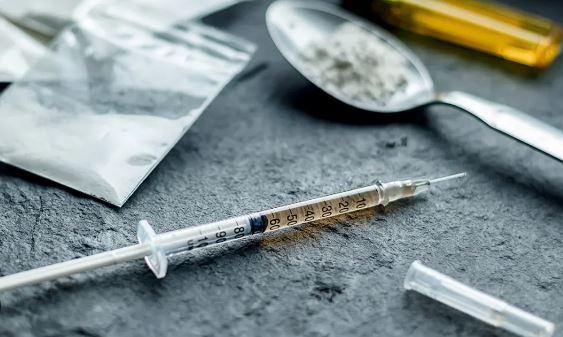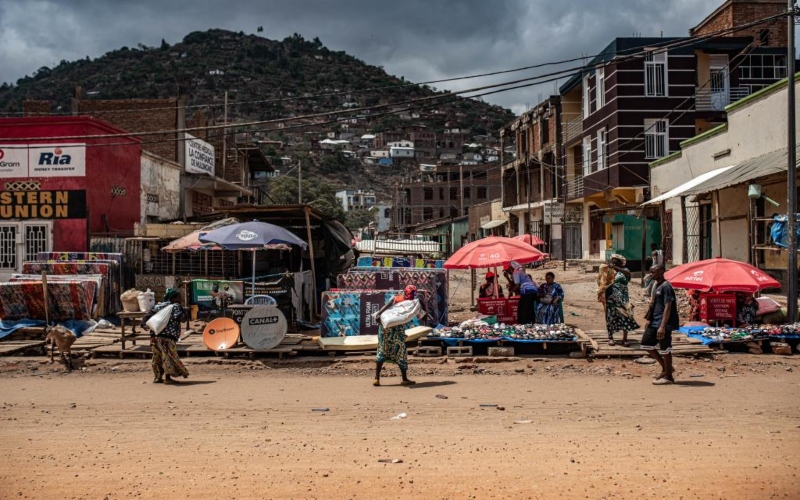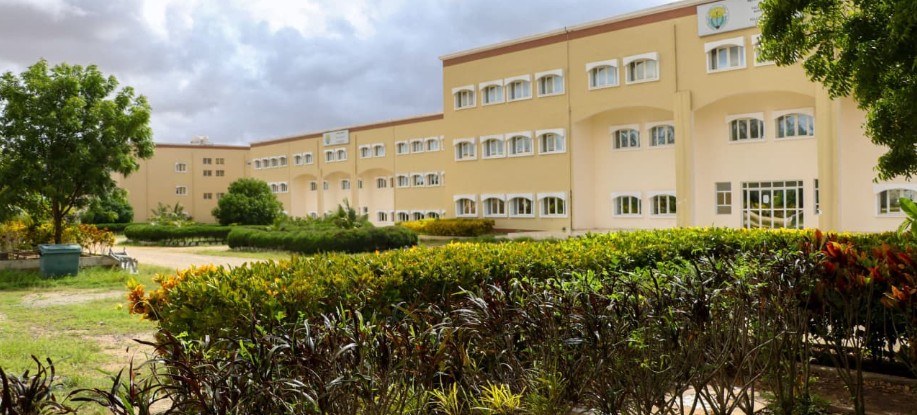Trapped in addiction's shadow: Mombasa parents battle for sons lost to drugs

Most parents dream of their children attending school and coming out successful. But the case is different for some of those living in the Coastal region.
Most parents dream of their children attending school and coming out successful. But the case is different for some of those living in the Coastal region. The Coastal region has been known to be one of the areas with the highest numbers of drug addicts in the country, with the majority being youth. This has greatly reflected in the lives of their parents facing a harsh world as they try to peacefully coexist with the community members. The majority have been forced to bend the rules and buy drugs for their children just to prevent them from committing criminal activities in the name of satisfying their urge for drugs.
Bilal Karisa, who is known as Baba Athman, could not hold back his tears as he narrated how hard it has been for him trying to revive his son’s life back on track. He is one of the parents whose child’s drug addiction has affected him. His son is one of the well-known addicts in Kisauni. “My son studied up to class eight. He started avoiding going to school, saying he wanted to do business. Little did I know his business was transforming him to become a drug addict, someone the society looks down upon,” says Bilal.
More To Read
- DCI raids Mombasa graduation over fake degrees, six Menorah Training Institute officials arrested
- County issues new festive season rules for public events in Mombasa
- KeNHA set to ease holiday traffic with partial opening of Mombasa–Malindi highway
- Anger in Mombasa’s Mikindani as families rely on costly bowsers amid prolonged water crunch
- Mutua sounds alarm as drug abuse blocks coast youth from lucrative jobs abroad
- Mombasa sets January deadline for tuk-tuk operators' SACCO registration
To him, his son was a good person until he started joining groups with other boys. It took him five years to find out that his son was using drugs and had become an addict. “I knew he was going to do his business and come back home. It reached a point he stopped coming back home, so I had to investigate what exactly he was up to. I was shocked to find out he was injecting himself with heroin,” narrated Bilal.
With his voice breaking down and eyes full of tears, the father of five opened up on how his son would spend Sh600 a day. “One dose costs him Sh200, and he usually does three doses. It was painful for me as a parent not knowing my son was into such a life for that long,” said the distraught father.
His struggle with his son’s addiction made him frequently have to solve robbery cases and pay for the items stolen by his son. “I have received so many cases in my home that my son has stolen from people. I paid them back with my own money. He even went to the extent of stealing from our own home and selling the items,” he says.
He was frustrated since his son was not changing despite having all sorts of talks with him. “I had to personally take him to the chief because he was not abstaining; he narrated his life to the authorities who decided to take him to a rehabilitation center. Unfortunately, they told us there is not enough space, so we had to go back home,” says Bilal.
His son, now 27 and an active user of heroin, depends on money earned from construction sites to earn money which he in turn uses to purchase his drugs. As a father’s love for his son, Bilal has been severely forced to provide money for his son to buy drugs, especially when he starts to show withdrawal symptoms. “I see him really struggling in that state. He vomits and complains of headaches and fever when he fails to inject himself just for a day,” he explained, saying that the move also prevents his son from stealing the next item from him or a neighbor just to get money for the drug.
In Mombasa Old Town, Naima Twahir is also a victim of substance abuse after losing two of her elder brothers to drug addiction. This has also not spared her younger brother who is currently an active user, forcing her to step up and play the role of a parent. A situation that made her end up as a community health volunteer in Mombasa County.
“I have lost two of my brothers due to drugs, and I am only remaining with the younger one, who unfortunately has joined the drug world,” said frustrated Ms Twahir. It is a memory she does not want to remember, as she tells the Nation.
“The firstborn started abusing drugs when he was at the age of 15 years, finding himself behind bars at a younger age. He was only using bhang while in prison. After thirteen years of serving, he came out and graduated to heroin,” says Ms Twahir.
His brother ended up contracting HIV infection after sharing the injection syringes with others. “We encouraged him to start medication, but it looks like he was not using the medicine. He was admitted to Coast General Hospital, where he was diagnosed with Tuberculosis and unfortunately died after the first treatment,” says Ms Twahir, whose brother died before the age of 30.
As if it was not enough, his second brother who was also a drug addict and into the fishing business one day vanished with no warning. Efforts to search for him were fruitless until after four days. “On the fourth day, we got news that someone's body had been found in an abandoned house. It was him. He had injected the heroin into the wrong vein,” says Ms Twahir.
She has now been left with only one young addict brother and a small sister who is married. She is now doing her best to look after her own family and parents as well. “My parents thought my brothers will be the breadwinners of our family, it is really sad. Now we are battling with the young one who is also i Most parents dream of their children attending school and coming out successful. But the case is different for some of those living in the Coastal region of Kenya. The Coastal region has been known to be one of the areas with the highest number of drug addicts in the country, with the majority being youth.
This has greatly reflected in the lives of their parents facing a harsh world as they try to peacefully coexist with the community members. The majority have been forced to bend the rules and buy drugs for their children just to prevent them from committing criminal activities in the name of satisfying their urge for drugs.
Bilal Karisa, who is known as Baba Athman, could not hold back his tears as he narrated how hard it has been for him trying to revive his son’s life back on track. He is one of the parents whose child’s drug addiction has affected him. His son is one of the well-known addicts in Kisauni. “My son studied up to class eight. He started avoiding going to school, saying he wanted to do business. Little did I know his business was transforming him into a drug addict, someone society looks down upon,” says Bilal.
To him, his son was a good person until he started joining groups with other boys. It took him five years to find out that his son was using drugs and had become an addict. “I knew he was going to do his business and come back home. It reached a point he stopped coming back home, so I had to investigate what exactly he was up to. I was shocked to find out he was injecting himself with heroin,” narrated Bilal.
With his voice breaking down and eyes full of tears, the father of five opened up on how his son would spend Sh600 a day. “One dose costs him Sh200 and he usually does three doses. It was painful for me as a parent not knowing my son was into such a life for that long,” said the distraught father.
His struggle with his son’s addiction made him frequently have to solve robbery cases and pay for the items stolen by his son. “I have received so many cases in my home that my son has stolen from people. I paid them back with my own money. He even went to the extent of stealing from our own home and selling the items,” he says.
He was frustrated since his son was not changing despite having all sorts of talks with him. “I had to personally take him to the chief because he was not abstaining; he narrated his life to the authorities who decided to take him to a rehabilitation center. Unfortunately, they told us there is not enough space, so we had to go back home,” says Bilal.
His son, now 27 and an active user of heroin, depends on money earned from construction sites to earn money which he in turn uses to purchase his drugs. As a father’s love for his son, Bilal has been severely forced to provide money for his son to buy drugs, especially when he starts to show withdrawal symptoms. “I see him really struggling in that state. He vomits and complains of headaches and fever when he fails to inject himself just for a day,” he explained, saying that the move also prevents his son from stealing the next item from him or a neighbor just to get money for the drug.
In Mombasa Old Town, Naima Twahir is also a victim of substance abuse after losing two of her elder brothers to drug addiction. This has also not spared her younger brother who is currently an active user, forcing her to step up and play the role of a parent. A situation that made her end up as a community health volunteer in Mombasa County.
“I have lost two of my brothers due to drugs, and I am only remaining with the younger one, who unfortunately has joined the drug world,” said frustrated Ms Twahir. It is a memory she does not want to remember, as she tells the Nation.
“The firstborn started abusing drugs when he was at the age of 15 years, finding himself behind bars at a younger age. He was only using bhang while in prison. After thirteen years of serving, he came out and graduated to heroin,” says Ms Twahir.
His brother ended up contracting HIV infection after sharing the injection syringes with others. “We encouraged him to start medication, but it looks like he was not using the medicine. He was admitted to Coast General Hospital, where he was diagnosed with Tuberculosis and unfortunately died after the first treatment,” says Ms Twahir, whose brother died before the age of 30.
As if it was not enough, his second brother who was also a drug addict and into the fishing business one day vanished with no warning. Efforts to search for him were fruitless until after four days. “On the fourth day, we got news that someone's body had been found in an abandoned house. It was him. He had injected the heroin into the wrong vein,” says Ms Twahir.
She has now been left with only one young addict brother and a small sister who is married. She is now doing her best to look after her family and parents as well. “My parents thought my brothers will be the breadwinners of our family; it is really sad. Now we are battling with the young one who is also into drugs. He is 29 years old, and he has been using hard drugs now for almost three years,” she says.
She explained that he (the brother) would travel to Lamu leaving his family thinking it was a business trip. One day, the sister was called by a mutual friend and informed her about her brother’s addiction.
“I tried asking him about it, but he denied it. However, being jobless, he can no longer hide it. He comes home since I am staying with our parents and asks them for money. Them being nice and supportive, they give him money not knowing that he is going to use it to buy more drugs,” Ms Twahir says.
All of the three brothers were class eight dropouts. She says despite her efforts to help his younger brother, there is still a challenge with the methadone medication as it is still easy for an addict to relapse despite starting the therapy.
Top Stories Today














































